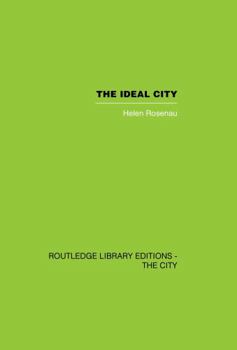The Ideal City: Its Architectural Evolution in Europe
The concept of the 'ideal city' is, perhaps, more important today - when planners and architects are so firmly confined by considerations of our immediate environment - than ever before. Yet it is a concept which has profoundly influenced the western world throughout history, both as a regulative model and as an inspiration.
Rosenau traces the progress of the concept from biblical sources through the hellenistic and Roman empires to the Renaissance and the later Age of Enlightenment, when the emphasis shifted from religious to social considerations. She goes on to discuss the resultant nineteenth-century ideal planning, when the idea of social betterment was approached with a specific and conscious effort.
This book was first published in 1983.
Related Subjects
Architecture Political Science Politics & Social Sciences Social Science Social Sciences




